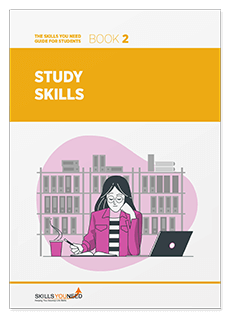How to Choose Your IB Diploma
Programme Subjects Wisely
See also: Choosing Study Subjects
Starting the International Baccalaureate (IB) Diploma Programme is a significant milestone for many students, particularly in Singapore, where education plays a key role in shaping its citizens' futures. Selecting the right subjects within the IB diploma programme is important since these decisions impact not only academic success but also future career pathways and personal growth. However, many people don’t know how to choose the right subjects. No need to get flustered though, we are here to help!
This article will walk you through the different factors you should keep in mind before making a decision. The guide aims to assist students, especially those in secondary schools in West Singapore, in making these choices with clarity and confidence. Let’s take a look.

Understanding the IB Diploma Programme Structure
The IB Diploma Programme is known for its rigorous and holistic approach to education, combining academic subjects with core components such as Theory of Knowledge (TOK), Creativity, Activity, Service (CAS), and the Extended Essay (EE).
Group Selection: The programme requires students to select subjects from six groups, ensuring a well-rounded education.
Higher Level (HL) vs Standard Level (SL): Students must choose three subjects at Higher Level and three at Standard Level, balancing depth and breadth of knowledge.
-
Core Components: The TOK, CAS, and EE are integral to the IB philosophy, fostering critical thinking, research skills, and personal development.
Factors to Consider in Subject Selection
While choosing subjects in the IB diploma programme, you should have a strategic approach after considering the following factors:
Interest and Strengths: Opt for subjects that align with your interests and academic strengths.
University and Career Goals: You must consider university requirements and potential career paths. For example, subjects like Biology and Chemistry at HL are very important if you want to pursue medicine.
Workload Management: Be realistic about the workload you can handle, especially considering the demanding nature of HL subjects.
How Do You Overcome Common Challenges While Choosing the Subjects?
Students often face difficulties during this process, which can be even bigger in the competitive setup of secondary schools in West Singapore. Here are some of the common issues you may face:
-
Peer Influence: Resist the urge to follow peers. Choose subjects that align with your unique path.
Parental Expectations: Engage in open conversations with parents to align their aspirations with your interests and abilities.
Changing Interests: It's natural for interests to evolve. Stay informed and flexible to adapt your choices if needed.
Top 5 Strategies for Making Informed Decisions
Research Well: Thoroughly research each subject, considering the content, assessment methods, and how it fits into your overall IB plan.
Seek Guidance: Use resources like school counsellors, IB coordinators, and teachers for advice and insights.
-
Future Planning: Keep your long-term academic and career goals in mind, ensuring your choices align with these objectives.
Consult with Alumni and Current Students: Reach out to alumni and current students who have experienced the IB diploma programme journey. Their firsthand insights and retrospectives can offer valuable, practical perspectives on subject selection and workload management.
Attend Subject-Specific Workshops and Seminars: Participate in workshops and seminars offered by your school or external organisations. These sessions can provide deeper insights into specific subjects, helping you understand the nuances and demands of each course.
Understanding the Potential of TOK, CAS, and EE
In the IB Diploma Programme, Theory of Knowledge (TOK), Creativity, Activity, Service (CAS), and the Extended Essay (EE) are more than just requirements; they're opportunities to deepen your knowledge and personal growth.
Integrating these elements with your chosen subjects is important to enrich your understanding and get a holistic education.
Strategic Planning for IB Success: Time Management and Stress Reduction Techniques
Working through the IB Diploma Programme requires effective time management skills and strategies to reduce stress. Here's what you should do - prioritise tasks, set realistic goals, and maintain a balanced schedule.
You must also set time aside for relaxation and adopt techniques that teach you mindfulness in your routine to manage stress. Remember, achieving a balance between academic responsibilities and personal well-being is key to success in the IB Programme.
How do you maximise opportunities in the IB Diploma Programme?
The IB diploma programme offers a unique opportunity for holistic development. Here’s how you can maximise this opportunity, especially if you are studying in a secondary school in West Singapore.
-
Balancing Subject Choices
A balanced selection of subjects is crucial for a well-rounded education.
Combining Sciences and Humanities: This approach ensures a broad knowledge base and skill set, preparing you for diverse challenges.
Language Proficiency: Including a second language enhances communication skills and cultural awareness, a key aspect of the IB’s international focus.
-
Utilising IB’s Flexibility
The IB programme’s flexibility allows students to explore their interests deeply.
Elective Choices: Use electives to explore new areas or deepen existing interests.
HL and SL Selection: Choose Higher Level subjects in areas of strength or interest and Standard Level subjects to maintain balance.
-
Preparing for University
Your IB subject choices can significantly impact your university applications.
University Requirements: Research and align your subject choices with the prerequisites of your chosen university courses.
Portfolio Building: Some subjects, like Visual Arts, can help build valuable portfolios for university applications.
Understanding CAS and EE and Their Role in the IB Programme
The Creativity, Activity, Service (CAS) programme and the Extended Essay (EE) are integral to the IB experience.
CAS Projects: Engage in CAS activities that align with your interests and demonstrate a commitment to personal and community development.
Extended Essay: Choose an EE topic that resonates with your interests and can potentially add value to your university application.
Final Considerations in Subject Selection
In your final selection, keep the following in mind:
Long-Term Goals: Ensure your subject choices align with your long-term educational and career aspirations.
Feedback from Seniors and Alumni: Seek advice from those who have already completed the IB diploma programme.
Personal Well-being: Consider your mental and physical well-being, choosing a challenging yet manageable workload.
Choosing your IB Diploma Programme subjects is a critical decision that sets the foundation for your future academic and professional goals. You can make wise and informed choices by considering your interests, strengths, and career aspirations and balancing them with practical aspects such as workload and university requirements. After all, the journey through the IB diploma programme is not just about academic achievement but also about personal growth and preparing for a successful future.
Further Reading from Skills You Need
The Skills You Need Guide for Students

Develop the skills you need to make the most of your time as a student.
Our eBooks are ideal for students at all stages of education, school, college and university. They are full of easy-to-follow practical information that will help you to learn more effectively and get better grades.
About the Author
Andy is a content marketer with a combined experience of 5 years. He is well acquainted with the education, health & BFSI industry, and is currently exploring his interest in writing. In his free time, Andy enjoys reading and travelling.


